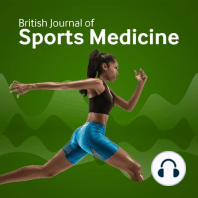20 min listen
Time to reset: What causes coronary artery disease? Dr Aseem Malhotra.
FromBJSM Podcast
ratings:
Length:
25 minutes
Released:
May 12, 2017
Format:
Podcast episode
Description
Britain's leading anti-sugar campaigner and one of the most prolific doctors in the world influencing obesity thinking and highlighting the harms of too much medicine.
In addition to being a Consultant Cardiologist, Dr Malhotra is a member of the board of trustees of UK health think tank, The King’s Fund and a member of the Academy of Medical Royal Colleges Choosing Wisely Steering Group
Here’s the link to his website: http://doctoraseem.com/biography/
Topics covered include:
No association of saturated fats and heart disease in primary or secondary prevention studies.
Focus on sugar -
•CVD mortality has come via reduction in smoking & trans fats with better acute AMI management.
•Statins have a number needed to treat of 1 in 83 for mortality in secondary prevention in men
•Stents save lives during heart attacks but not for 'stable' coronary disease
•PREDIMED and Lyon heart study
•Cholesterol is not the mechanism of action of how diet studies work
•Practical explanation-of frying vegetable oils and dangerous omega 6 (high omega 6 to omega 3 is bad)
•Butter and coconut oils have saturated fatty acids and are stable in cooking.
•Criticism from the Centre for evidence based medicine (Oxford).
Here is the editorial (Free) in BJSM:
http://bjsm.bmj.com/content/early/2017/03/31/bjsports-2016-097285
In addition to being a Consultant Cardiologist, Dr Malhotra is a member of the board of trustees of UK health think tank, The King’s Fund and a member of the Academy of Medical Royal Colleges Choosing Wisely Steering Group
Here’s the link to his website: http://doctoraseem.com/biography/
Topics covered include:
No association of saturated fats and heart disease in primary or secondary prevention studies.
Focus on sugar -
•CVD mortality has come via reduction in smoking & trans fats with better acute AMI management.
•Statins have a number needed to treat of 1 in 83 for mortality in secondary prevention in men
•Stents save lives during heart attacks but not for 'stable' coronary disease
•PREDIMED and Lyon heart study
•Cholesterol is not the mechanism of action of how diet studies work
•Practical explanation-of frying vegetable oils and dangerous omega 6 (high omega 6 to omega 3 is bad)
•Butter and coconut oils have saturated fatty acids and are stable in cooking.
•Criticism from the Centre for evidence based medicine (Oxford).
Here is the editorial (Free) in BJSM:
http://bjsm.bmj.com/content/early/2017/03/31/bjsports-2016-097285
Released:
May 12, 2017
Format:
Podcast episode
Titles in the series (100)
Professor Harm Kuipers looks back: Harm Kuipers, emeritus professor of the University of Maastricht, talks to Babette Pluim, BJSM deputy editor, about the meaning of sport, the challenges of being an editor, and his most exciting scientific research projects. These are overtraining, d... by BJSM Podcast
